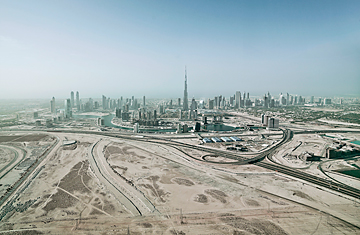
On Feb. 5, a team of Russian scientists in Antarctica made history. Working on and off for nearly a decade in the inhospitable climate, the researchers, who had been drilling through two miles (3.2 km) of solid ice, finally reached their goal: the subglacial Lake Vostok, whose liquid water had been sealed off from light and air for up to 34 million years. The lake could contain previously unknown forms of microbes, and because the water's temperature and chemical makeup resemble the environment found on Europa, one of Jupiter's icy moons, Lake Vostok may even help us understand how life could exist on other planets. But the Vostok expedition is also extraordinary because it enabled scientists to reach a part of the planet that had never before been touched by human beings. Lake Vostok was one of the very few truly pristine places on earth in 2012, and now we're starting to tinker with it too.
For a species that has been around for less than 1% of 1% of the earth's 4.5 billion-year history, Homo sapiens has certainly put its stamp on the place. Humans have had a direct impact on more than three-quarters of the ice-free land on earth. Almost 90% of the world's plant activity now takes place in ecosystems where people play a significant role. We've stripped the original forests from much of North America and Europe and helped push tens of thousands of species into extinction. Even in the vast oceans, among the few areas of the planet uninhabited by humans, our presence has been felt thanks to overfishing and marine pollution. Through artificial fertilizers--which have dramatically increased food production and, with it, human population--we've transformed huge amounts of nitrogen from an inert gas in our atmosphere into an active ingredient in our soil, the runoff from which has created massive aquatic dead zones in coastal areas. And all the CO2 that the 7 billion-plus humans on earth emit is rapidly changing the climate--and altering the very nature of the planet.
Human activity now shapes the earth more than any other independent geologic or climatic factor. Our impact on the planet's surface and atmosphere has become so powerful that scientists are considering changing the way we measure geologic time. Right now we're officially living in the Holocene epoch, a particularly pleasant period that started when the last ice age ended 12,000 years ago. But some scientists argue that we've broken into a new epoch that they call the Anthropocene: the age of man. "Human dominance of biological, chemical and geological processes on Earth is already an undeniable reality," writes Paul Crutzen, the Nobel Prize--winning atmospheric chemist who first popularized the term Anthropocene. "It's no longer us against 'Nature.' Instead, it's we who decide what nature is and what it will be."
